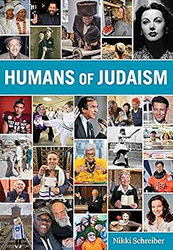Adolf Müller’s family was well known in his hometown of Stuttgart, where Adolf was a prominent businessman, and his wife, Bette, a sought-after seamstress. Adolf had fought in the First World War; he considered himself a proud German, and he loved his country. He noticed the escalation of antisemitism under the Nazis, but he could not imagine where it would lead.
Like many Jewish men throughout Germany, Adolf Müller was arrested in the aftermath of the Kristallnacht pogroms that swept the country on the night of November 9, 1938. Jewish synagogues, businesses, and homes were ransacked, desecrated, and burned to the ground while officials and neighbors watched. A few days later, Adolf was sent to the Dachau concentration camp.
Up to this point, Adolf’s tragic story was one that is unfortunately too familiar. But then events took an unexpected turn. Enter Adolf’s cousin, Max Rosenfeld, who was a high-ranking official in the Reich Ministry of the Treasury, serving as a top aide to the minister himself. In hopes of preserving his career, Max converted to Catholicism and changed his name to Max Immanuel. Yet when the employment of Jews in civil service was outlawed, he was forced to resign.
Max was very fond of his younger cousin, who was now in grave danger. Despite being profoundly anxious about the precarity of his own situation, and despite the deadly risk involved, Max decided to undertake a daring rescue mission. Against all odds, his plan to liberate his cousin from Dachau succeeded, and the next day, Adolf was reunited with his wife and daughter in Stuttgart.
Based on the account of Adolf and Bette’s daughter, Kathe Mueller Slonim, Escape from Dachau tells the story of Slonim’s father’s arrest and his dramatic rescue by her uncle. Just eleven years old at the time, Slonim was hidden in a Catholic convent during the uncertain months between her father’s arrest and her family’s departure from Germany. Adolf’s experience in Dachau had a profound impact on him; after his liberation, he was never the same. It was Bette’s resourcefulness and resilience that proved invaluable again and again: she devised plans to send cash to her brother in the US, conceal the family’s valuables, and smuggle them out of Germany.
Escape from Dachau sets the Müllers’ story within the larger family history, beginning with Slonim’s great-grandfather and family patriarch, Isaak Rosenfeld — who established the family seat in Crailsheim in the mid-nineteenth century — and continuing with the experiences of the Müllers (now the Muellers) after their immigration to the US. This story is part of the long arc of Jewish history in German lands from medieval times to the twentieth century, an arc that offers historical background for the rise of antisemitism under the Third Reich. Illustrated with original family and archival documents, and written with clear and straightforward language, Escape from Dachau is well suited for younger readers and provides an engaging, accessible account of one family’s resilience and determination to survive in the face of inconceivable evil.
Ingrid Weyher is the Program Manager for the University of Denver’s Center for Judaic Studies. She holds an M.A. in art history and history and specializes in Holocaust education.





